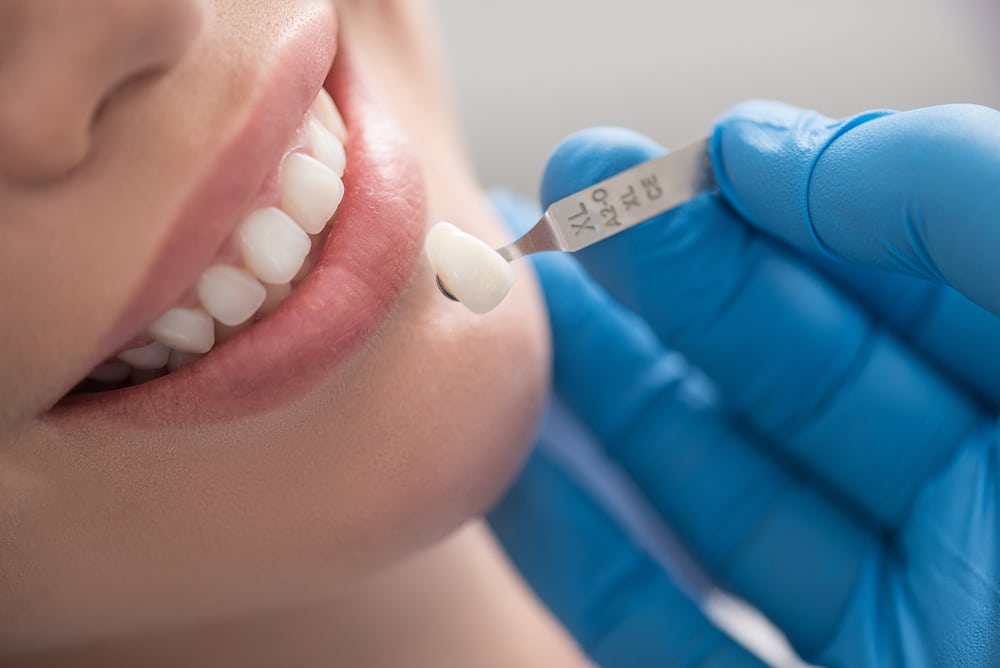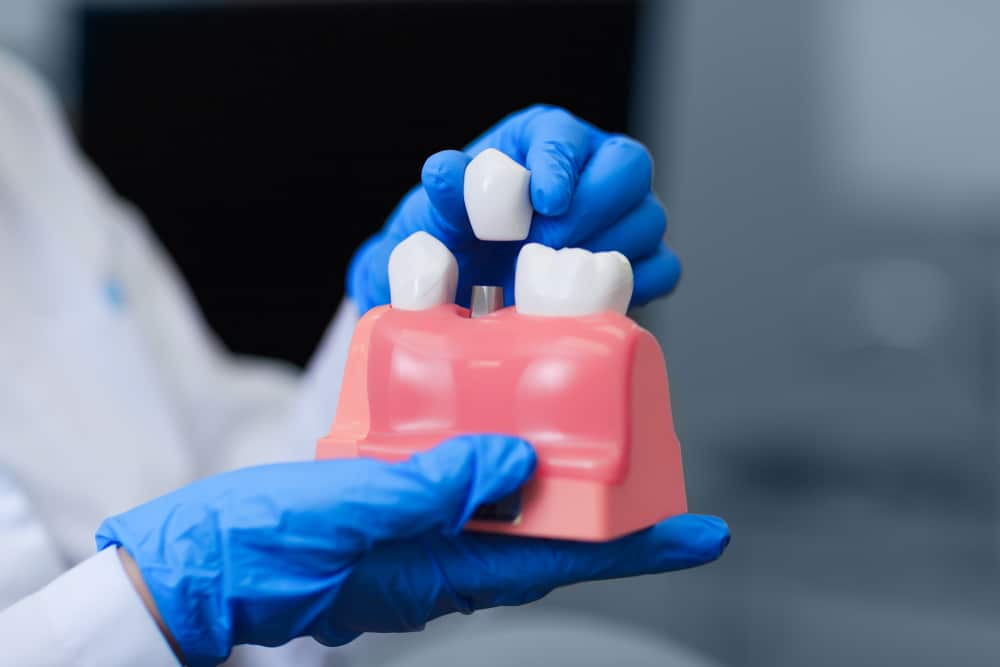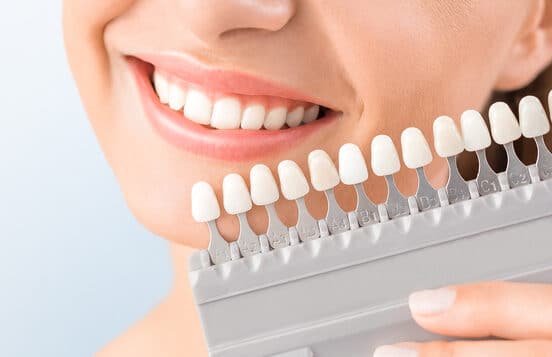Dental Crowns
Dental Crowns - Restore and Strengthen Your Teeth
we offer high-quality dental crown services to restore
and strengthen weak, broken, or decayed teeth. Our experienced team of dentists utilizes advanced techniques
and materials to ensure optimal results. In this service page, you will learn what dental crowns are, their importance,
the different types available, the procedure involved, as well as the benefits and considerations.




What Are Dental Crowns?
A dental crown is a tooth-shaped cap that is used to cover a damaged tooth.
It is designed to restore the tooth’s shape, size, strength, and appearance. By placing a crown over a compromised tooth, it provides protection, support, and enhances its overall functionality.
About Dental Crowns in Detail:
Strengthen Weak Teeth:
Crowns are an effective solution for teeth that have become weak due to decay, fractures, or large fillings. By encasing the tooth, the crown provides stability and prevents further damage.
Protect Cracked Teeth:
Cracked teeth are susceptible to further fractures and infections. A dental crown covers and holds the cracked tooth together, providing protection and preventing the crack from worsening.
Restore Worn-down or Broken Teeth:
Teeth that have been significantly worn down or broken can be restored with dental crowns. The crown restores the tooth’s shape, size, and appearance, enabling normal chewing and biting functions.
Support Dental Bridges:
Dental crowns are used to anchor dental bridges in place. They provide stability and support to the bridge, allowing for proper functionality and aesthetics.
Improve Aesthetics:
Severely stained or discolored teeth that cannot be effectively treated with other dental procedures can be enhanced with dental crowns. The crown covers the tooth, providing a natural and aesthetically pleasing appearance.
Cover Root Canal-Treated Teeth:
After a root canal procedure, a tooth may become weak and more prone to fractures. A dental crown is placed over the treated tooth to protect it and restore its strength


Procedure Overview
1. First Visit
Tooth Preparation: The dentist prepares the tooth by removing a small amount of
enamel to create space for the crown.
If the tooth is severely damaged, additional filling material may be used to build a foundation.
Dental Impressions: Impressions of the prepared tooth are taken either physically
or digitally and sent to a dental lab, where the custom crown will be created.
Temporary Crown: While waiting for the permanent crown,
a temporary crown is placed to protect the tooth.
2. Second Visit
Removal of Temporary Crown: The temporary crown is removed,
and the tooth is cleaned and prepared for the permanent crown.
Fit and Placement: The dentist checks the fit, color, and appearance of the permanent crown.
Once satisfied, it is bonded to the tooth using dental cement.
Final Adjustments:
The dentist ensures that the bite and alignment are correct,
making any necessary adjustments for optimal comfort and functionality.
All Insurance Plans
We strive to make dental services convenient for all patients, which is why we accept a wide range of insurance plans. Whether you have private insurance, employer-provided insurance, or government insurance, we are here to assist you in utilizing your benefits effectively.

Now Accepting
Medicare & Medicaid
Schedule Your Appointment Today!
Take the first step towards a healthy and beautiful smile by scheduling your appointment with our dental clinic.
FAQ
How long do dental crowns last?
Dental crowns can last between five and 15 years, depending on various factors such as oral hygiene practices, biting forces, and the material used for the crown. With proper care and regular dental check-ups, crowns can have an extended lifespan.
Are dental crowns painful to get?
The process of getting a dental crown is typically not painful. Local anesthesia is used to numb the area, ensuring a comfortable experience during the tooth preparation and crown placement. Some individuals may experience mild sensitivity or discomfort after the procedure, but it should subside within a few days.
Can dental crowns be whitened?
Unlike natural teeth, dental crowns cannot be whitened through traditional teeth whitening methods. The color of a crown is determined during its fabrication, so it is important to choose a shade that matches your desired tooth color. If you wish to have a whiter smile, discussing teeth whitening options with your dentist before crown placement is recommended.
Can dental crowns be repaired if they get damaged?
In cases where a dental crown chips or fractures, repair may be possible depending on the extent of the damage. Minor chips can often be smoothed out, but more severe damage may require replacing the crown entirely. It is important to visit your dentist promptly if you notice any issues with your crown to assess the best course of action.
Can dental crowns be used for cosmetic purposes only?
While dental crowns are primarily used for restorative purposes, they can also provide significant cosmetic benefits. Crowns can enhance the appearance of teeth by improving their shape, size, and color. They can be used to address cosmetic concerns such as severe discoloration, misshapen teeth, or gaps. However, it is essential to consult with your dentist to determine the most appropriate treatment option for your specific needs.
ACCEPTED INSURANCE:






